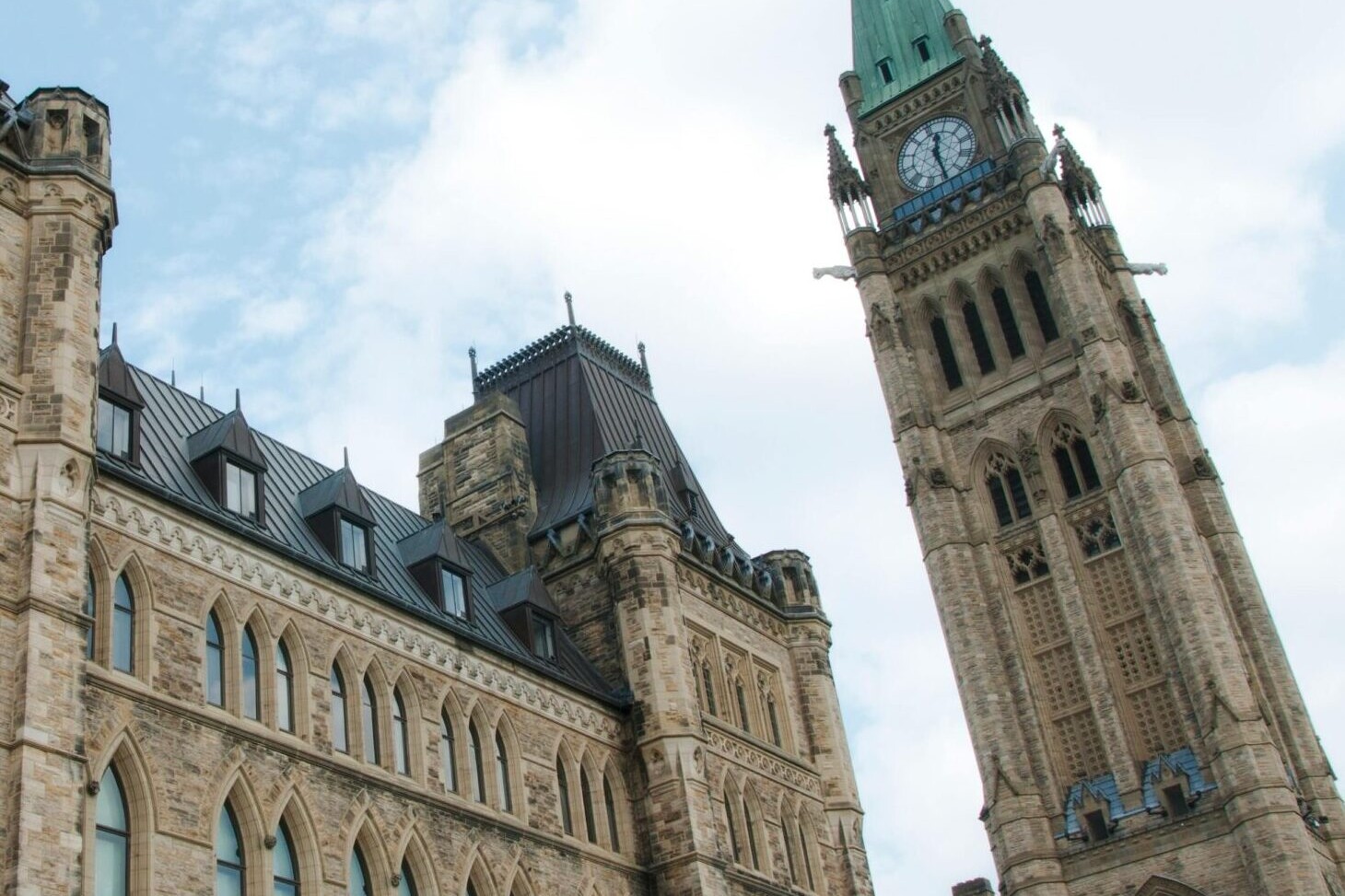By Social Capital Partners | Part of our Special Series: Always Canada. Never 51.
The Trump economic assault on Canada requires a fundamental re-think of our public policy tools.
Many Canadians from across sectors and ideological perspectives are mobilizing to come up with responses to a radically transforming United States and disruption in the global geopolitical and economic order.
New voices entering the policy discussion will help us get through the current crisis and emerge in a more hopeful place.
But it would be a shame if the ideas we pursue are the same recycled ideas that the business community has been pursuing for two decades. Eliminating some inter-provincial trade barriers and getting more energy infrastructure built more quickly will be good for the economy. But we need to do much more than that.

Recently, our Chair Jon Shell posted a series of ideas on LinkedIn meant to strengthen Canada’s economy in a way that responds to an adversarial and untrustworthy America. Although he didn’t undertake detailed policy analysis, he did identify real problems and suggested an array of out-of-the-box solutions that haven’t been part of the mainstream policy discussion. And then, he invited his LinkedIn followers to “Please add others. Would be great to have a list of crazy things. Maybe a few are even doable.”
The responses were amazing and highlighted the deep well of creative thinking in Canada right now. Canadians are prepared for change and have ideas about how to pursue change in the context of the new world in which we live. Many of us have felt that status-quo policy approaches are not working and that now is the time to exponentially accelerate our thinking and execute on big ideas.
Good policy can come from anywhere, and it is best when it is informed by lived experience. From LinkedIn and from people in communities who run businesses, work with their hands, deliver services to the vulnerable, struggle to find an affordable apartment – or dozens of other real-world life experiences that need to inform Canada’s policy choices in the coming months. At Social Capital Partners, we are committed to incubating good ideas, and pursuing the ones where we think we can influence the most transformative change.
The ideas we advocate for right now are those will build more economic sovereignty for Canada and will help working people build wealth and economic security – and that have a realistic chance of being implemented in the next few months, regardless of which party is in government. As Jon said: “It would be great to do some things with the Europeans that would actually surprise the U.S. and put us on the front foot for once. Really show our independence and creativity. How about these:
→ Announce a deal for a munitions factory in Quebec to produce weapons for Europe with aluminum and steel that would otherwise have gone to the U.S.
→ Coordinate with France, the UK and Germany to leave NATO and establish a new org, inviting others to join. Right now we’re all just sitting around for the U.S. to leave – take the ball out of their hands.
→ Work with the Chinese to sell TikTok to a consortium of European and Canadian interests, leaving China with an economic interest but no access. The U.S. doesn’t seem to be any closer to doing a deal – why not compete?
→ Announce a partnership for some kind of big ambitious space mission between Europe and Canada.
Then, Jon reminded his followers to “Take this thing to a higher level than trade – make it clear that we’re not going to sit back and wait to react to Trump’s latest move – other world powers are ready to move on.” And you responded. Here are some ideas worth sharing:
→ “Joint development of an AI platform to compete with US and Chinese platforms. And for fun, locate the servers in Greenland (and Canada, of course).” – Michael Ras
→ “Retooling some of our auto manufacturing capacity to make more rapid deployment armoured vehicles. Add UAV drone and electronic warfare development and manufacturing (we have a lot of talent) in this area.” – Robert Welke
→ “How about Canada joining the European Union? Opening up trade, travel and free exchange of ideas with the continent? And I’d suggest that we need to allow people from a long list of friendly countries to be able to work and live here without visas. Also, we should partner with Sweden to buy/build a replacement for the F35s and with Switzerland to develop a civil defence force.” – Mathieu Cote
→ “How about creating a temporary free trade zone between western industrialized democratic economies: Canada, UK, France, Germany, Italy, Japan, New Zealand, Australia etc.” – Sean Lowrie
→ “Satellite to connect northern Canada!” – Sandra MacDougall
→ “Provide a safe haven for offshoring the operations, funds and data of the scores of social justice orgs that are threatened here in the US.” – Dr. Astrid Scholz
→ “Made in Canada or in Europe. Wouldn’t that be nice.” – Claudia A.

→ “i’ve heard this before – but develop the refining capacity for our own rare earth minerals. develop our own refining capacity for our oil but i’m not sure if this makes sense as we transition away from fossil fuels. i would like to see us ramp up mfg for alternative energy and using our steel & alum to do so.
also, would like to see what we can do w/ science & tech as american research programs get shuttered thru defunding. we have world class research institutions. what’s our next discovery?” – areni K.
→ “Announce Canada has joined the EU and offer US states that will price carbon favoured trading status. (Yes, that was unconstitutional in the US, but Trump officially threw the constitution out on Friday!)” – Wren Montgomery
→ “A collaboration between Canadian (Bombardier) and European (Airbus) aerospace companies to build an electric troop/passenger transport plane to reduce the reliance on fossil fuels (the United States is currently the biggest fossil fuel producer in the World).” – Bastiaan Vermonden
→ “Announce major infrastructure projects like expanded port facilities along the St. Lawrence, and additional rail infrastructure connecting to them to support increased trade volumes with Europe!” – Joshua Gelata
→ “A major HVDC power cable connecting Canada via Greenland (sic), Iceland and UK to Europe to balance and trade renewable power across time zones and jurisdictions.” – Roland Kupers
→ “This has to have some soft power components. Incentivize people to people and business to business connections. Extended work visas for Canadians in the EU, and vice versa. Make education more accessible to students from the EU and Canada. Tax breaks for joint ventures, or preferred funding available to joint ventures from a new DARPA-type initiative in Canada. Remove some fees for flights from Europe at Canadian airports, and vice versa.” – Michael Wodzicki
→ “I just had an interesting conversation with a friend about Chinese EVs and how Canada has tariffs on them. It would actually be very interesting to see a production facility agreement in Canada for one of those Chinese firms. Lots of great, local manufacturing jobs, better, expanded access to EV market options.” – Sent via DM
Please keep this conversation going. Now is not a time to be shy. All of these discussions are helping inform the public conversation and are helping us better understand the problems and possible solutions Canada can pursue.
Share with a friend
Related reading
Four reasons our economy needs employee ownership now
Employee ownership offers a timely solution to some of Canada’s most pressing economic challenges, writes Deborah Aarts in Smith Business Insight. Evidence shows that when employees share ownership, businesses become more productive, innovative and resilient. Plus, beyond firm-level gains, employee ownership can help address the coming mass retirement of business owners, protect local economic sovereignty, boost national productivity and reduce wealth inequality. There is enough data about the brass-tacks benefits of employee ownership to sway even the most hardened skeptic.
Advice to the public service: Five ways to confront monsters and chaos
Canada's political and bureaucratic leaders are quickly trying to re-wire the federal government to confront a belligerent Unites States, but systems can’t deliver what they were not designed for. This is a time like no other in our history, writes Matthew Mendelsohn, and those making decisions have not been trained for this—because we haven’t experienced anything like this before. Drawing on his own time in Ottawa, he walks us through five priority “machinery of government” changes our public service needs to make to meet the threat of an increasingly authoritarian, imperialist America.
How to get single family homes out of the hands of investors | Toronto Star
About 1.3 million homes in Canada that could be family-owned are held by investors—mostly individuals. In The Star, Matthew Mendelsohn, the Missing Middle Initiative's Mike Moffat and Jon Shell explain how a simple tax change could finance new rental construction while also freeing up homes for families to buy. The policy would temporarily allow investors to defer capital gains taxes if they reinvest proceeds into new purpose-built rentals. Many policy changes are needed to fully address the complex Canadian housing crises, and this could be one that puts Canadian capital to more productive uses.


